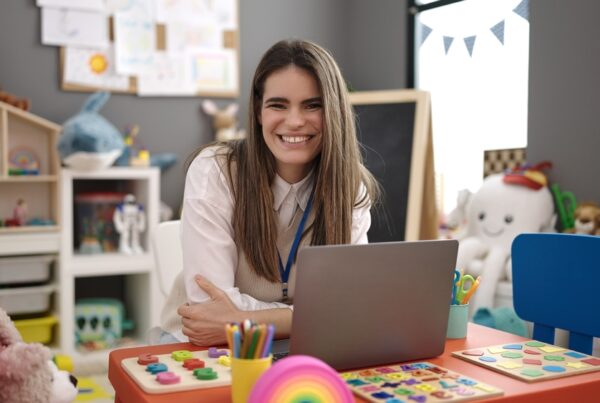From a very young age, children learn about their world by observing, discovering, and interacting with the natural elements in a garden. Involving children in the process of gardening is exciting for both teachers and children and there are many ways to enjoy the potential of on-going and interrelated investigations with gardening projects.

Gardens can educate even very young children about food, the cycle of life, and the wonder of collecting fresh vegetables or flowers from the garden. Gardening also teaches children many skills, from problem solving, to planning and implementation. Over time children may also learn patience as they wait for seeds to grow, and how to appreciate and enjoy the satisfaction of hard work and reap the rewards. The experience of growing food can also encourage healthy eating habits that will help their bodies grow.
Starting a garden
Starting small in an early learning centre or classroom begins with simply planting a seed or striking a plant. It does not necessarily require outdoor space. Gardens can be started indoors on windowsills, window boxes, low hanging baskets or simply on a table near a window or with an artificial light source. There are many education environments with simply designed small scale gardens that allow children to learn about growing plants and conduct experiments in what is essentially a plant-based small science space.
Experiencing other gardens
Even when a small indoor garden is not possible to provide, an alternative is to organise visits to gardens such as community gardens, private gardens and botanical gardens. Parks and botanical gardens often have specific programmes that are developed especially for young children. Many botanical gardens can also be visited online and offer various educational programmes that are most valuable to supplement real garden visits and for children who can’t get to a local garden.
Communication and inspiration
The progress of garden activities can be linked to language, stories, music and art. Conversations about the garden support children’s understanding of the world and enhance their cognitive abilities. Gardening offers lots of opportunities to talk about the growing process which helps develop a child’s vocabulary. The garden is a very inspiring place for children to draw ideas from for their drawings and stories. Aside from inspiring creativity children might simply enjoy the many practical aspects of gardening such as creating labels to mark the various plants and trees. Other diagrammatic skills most relevant in the garden lean towards scientific study such as those that teach children as how to graph the heights as plants grow and record the differences of leaves and flowers.


Physical and perceptual development
As tactile and sensory learners, children benefit from being outside in the fresh air amid the countless fragrances of plants and flowers. Outside they also experience weather changes and can learn about the different seasons. Children will get much needed exercise by moving among the trees and plants, running across grass and paths, walking through sand, soil and puddles and climbing up hills and down valleys. Along with overall improved physical strength children’s motor skills can be developed by using a variety of garden tools.
Environmental awareness
Being outdoors and in the garden helps children get a closer look at wildlife and the lifecycle of plants. Older children will learn from the hands-on experience about concepts such as evaporation, propagation, capillary action, biodiversity and decomposition. Children can be shown to notice and compare shapes, sizes, and weight of seeds, foliage, and produce. Children are great observers and enjoy the various textures of tree bark, flower petals, plant stems, and leaves. Aside from vegetation, some of the topics that are easily discussed in the garden include soil, weather, wildlife, nutrition, land uses, environmental issues, insects, micro-organisms and much more. Observing and recording, the fundamental aspects of scientific study, can begin in the garden.
Problem solving
In the garden it is easy for children to practice problem solving as they collaborate with their friends or find ways to work on their own to move rocks and pots or to figure out the most efficient way to keep a garden watered. Children in the garden also practice reasoning such as when trying to predict which seed will grow what vegetable, or where a plant might have more or less sunshine. Children want to investigate and experiment and are motivated to be involved in the process as well as watching the outcome.
A lifetime of learning
Creating a garden and tending to it encourages curiosity and the hands-on learning empowers children in a healthy tactile way. Children are fascinated to watch what happens after planting seeds. The tactile and sensory experiences of gardening can influence a child’s mood and they may be far more relaxed in this learning environment with the smell of the earth and living plants. Children may be inspired to work independently or cooperate with other children in a garden as they plant seeds, collect produce and develop other projects. As the plants grow, so does the children’s interest in ecosystems and the world. Gardening in early life provides a fertile seedbed for budding environmentalists, artists, horticulturalists, ecologists, scientists, mathematicians …and lifelong garden lovers.









